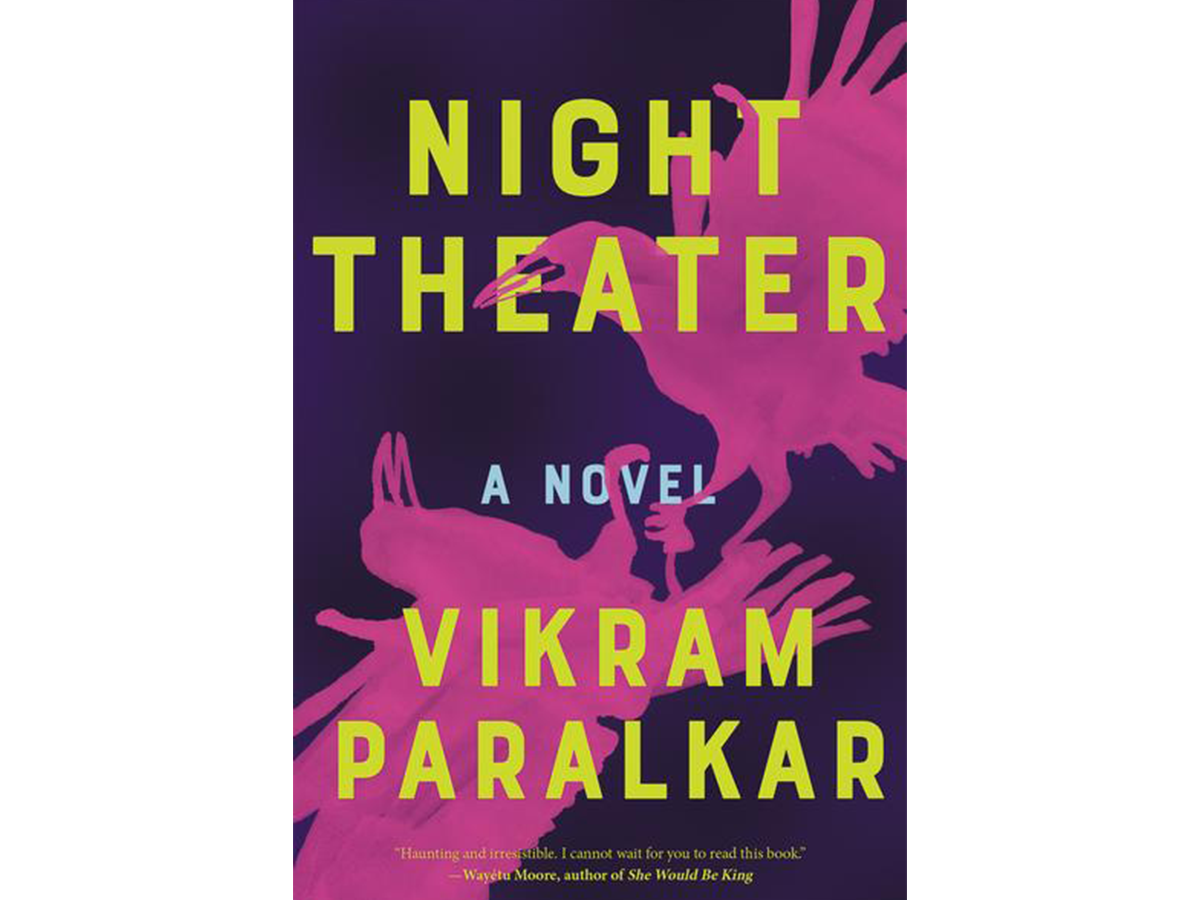To what extent would you go to preserve life? What about quality of life? These are two of the questions addressed in Vikram Paralkar’s Night Theater. Moreover, how much are we really responsible for what happens to us? Or what happens to our neighbors?
In a rural clinic in India, three people appear making an unusual request, a request that must be fulfilled by dawn the following morning. After a long day in the clinic, do you—as an ethical doctor, following the Hippocratic Oath—treat them, even if it takes all night? Do you oblige your staff to go along with you? Does it matter that your prospective patients are dead?
That is how Paralkar’s Night Theater begins—with a supernatural dilemma. But these are not all the dilemmas our careworn physician “Doctor Saheb” faces. Some are quite natural, such as the constant lack of supplies and entanglements with the heavily bureaucratic local government that haunt any rural clinic. But the supernatural dilemma that is unique to our story? It also gets caught up in the problems of everyday life.
There is another mystery at play in this novel. How did a doctor as accomplished as Doctor Saheb come to practice in an understaffed, undersupplied rural clinic? As a city doctor accused of corruption, he flees to rural India only to find out that corruption follows him. As a matter of fact, it could be that corruption is the cost of doing medicine—both for the living and the dead.
His dead patients—a family of three—appear at the clinic after having been attacked and killed in a robbery attempt. They have been dead for a while, and they became bored and dissatisfied with the monotony of the afterlife. So, they made a deal that would allow them to regain their earthly lives. But they don’t seem to know all the implications of the deal and, thus, neither does the doctor.
There are provocative aspects to this story. Can he save the pregnant mother so that she can live long enough to give birth to her unborn child? Does the deal the family made actually apply to this child that was not even born at the time of the attack? For that matter, if their bodies are not working, how are these people talking and moving about?
There are also logistical problems. Doing surgery on the dead does not require anesthetic, but what about when they return to life, with its possibilities of infection and pain? How to get the relevant supplies? Dr Saheb’s clinic—like any other rural clinic—is not prepared for such eventualities. More importantly, his dead patients are not from the local village. How does he explain their presence at his clinic? Furthermore, what does he do if the surgery is unsuccessful, and they die a final death? Where can he put the bodies? They can’t be burned in the trash pit behind the clinic. And they can’t be buried anywhere near the village; someone is bound to find the graves. Moreover, if the outcome of his treatment is only revealed at dawn, and it does prove to be unsuccessful, how will he and his assistant move about in the early morning light and not be discovered by the early rising villagers beginning their day? If it proves to be successful, how does he explain the presence of strangers in the village? It seems to be a no-win situation. Thus, should he hope for his surgeries to be successful? He’s not sure.
Night Theater is written in a completely straightforward style that accepts the magically real as a matter of course. This is the best kind of magical realism, because it emphasizes the real and makes you think that the events that befall the hero could happen to anyone. It could even happen to you. One feels as if Paralkar is retelling a story he might have overheard at a medical conference.
This is a story that flows rapidly and is perhaps best enjoyed if read in one sitting. That’s how I read it as the storytelling pushed me on to find out what happens. Will Dr. Saheb be able to finish his surgeries successfully as his past arises to haunt him? As the night goes on and dawn approaches, the stress on all three of the main characters increases. Is the dead family actually telling the truth about the deal they made? Perhaps they aren’t happy with it? Maybe they can renegotiate it? Watching these subtle changes in the characters is perhaps most intriguing to the reader. Their bodies may be dead, but the personalities of Dr. Saheb’s patients are very much alive.
Night Theater
by Vikram Paralkar
Catapult
Published on January 14, 2020
217 pages

Stacey E. Ake, PhD, PhD is an Associate Teaching Professor of Philosophy in Drexel’s English & Philosophy Department. Her interests include existentialism, semiotics, biosemiotics, science and religion as well as 19th Century Continental Philosophy, particularly Kierkegaard. She spent 5 years at the Kierkegaard Research Center in Copenhagen, Denmark. She also worked for two years as editor of the online journal published by the Metanexus Institute for Religion and Science. She lives in West Philadelphia.
